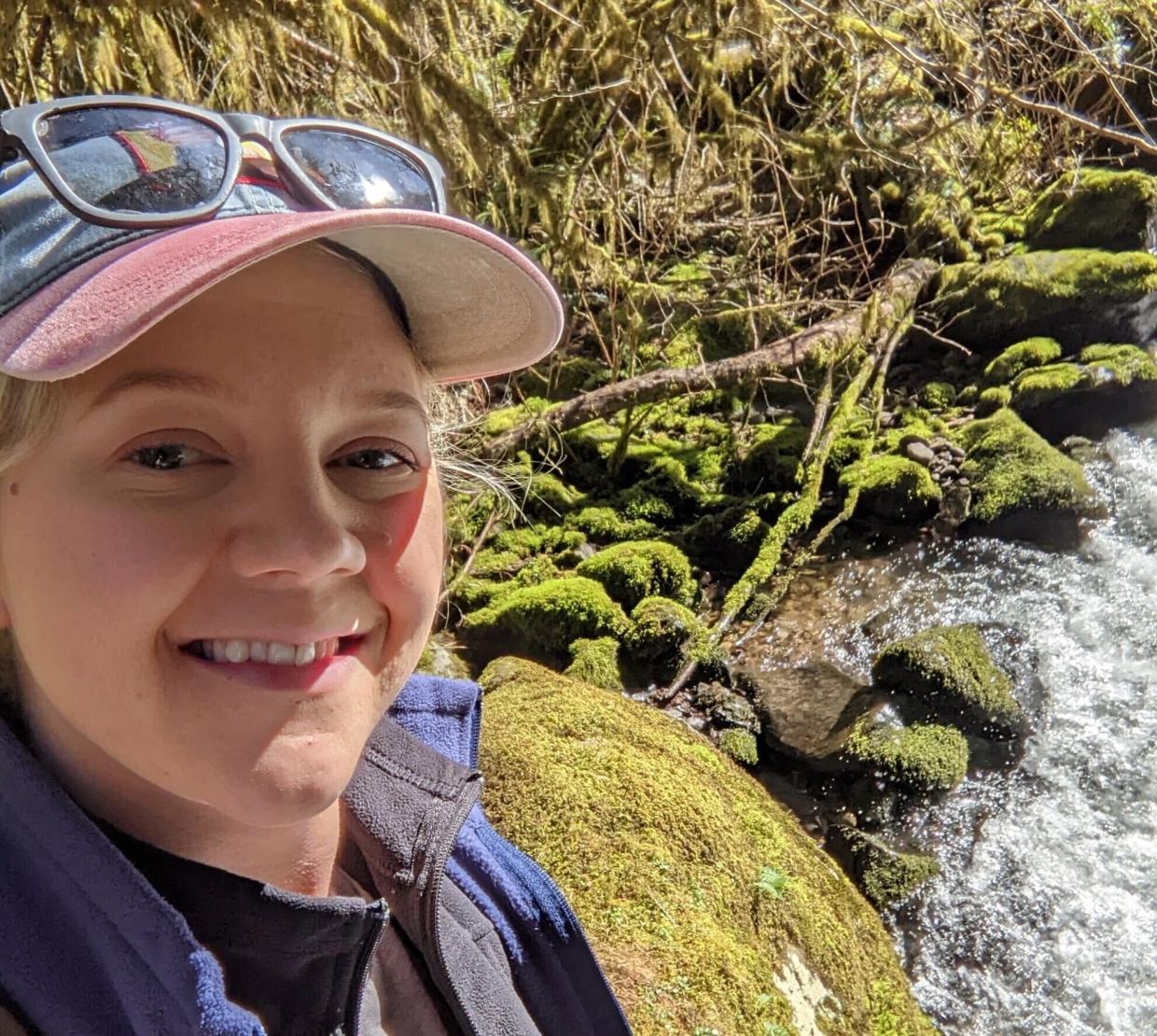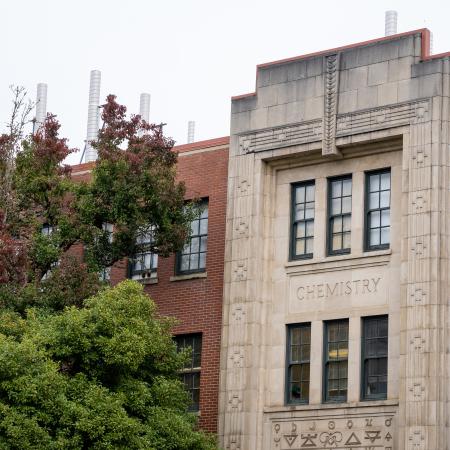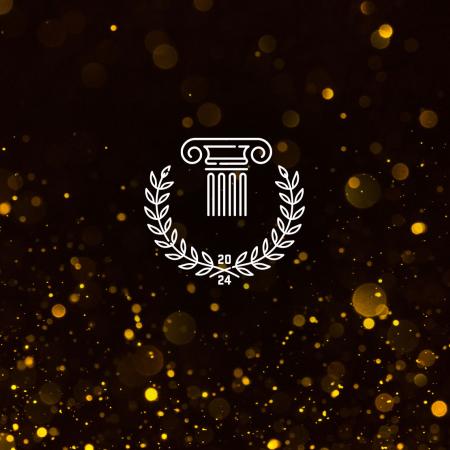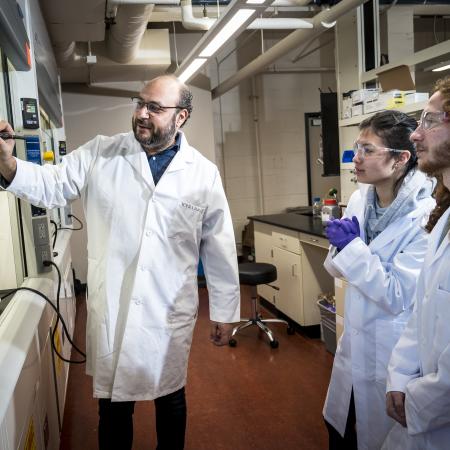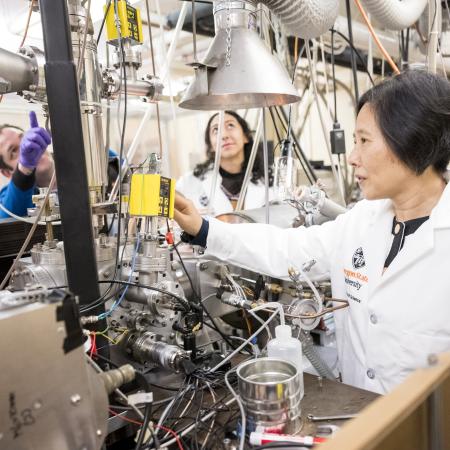After serving in the U.S. Air Force for five years, Erin McCarn decided to start researching graduate programs. The more time she spent searching, the more she realized her passion for chemistry ran deep.
“It can be frustrating, it can be difficult, but it is so beautiful in terms of the universal truths that it ties together. It doesn’t matter what language you speak, it’s the language that the atoms speak, and we’re all made up of star stuff and we’re all made up of atoms. So it ties us all together in this really strange ephemeral way,” McCarn said. “That’s really beautiful to me.”
An eastern U.S. native, McCarn picked Oregon State because of its proximity to her family and the diverse chemistry graduate research program. It also mattered to McCarn that someone in the Department of Chemistry nominated her for multiple scholarships before she had even formally committed to the program.
In fact, she was awarded the 2022-23 College of Science Mark (Ph.D., ‘78) and Vicki Hehnen Veteran’s Science Scholarship.
“It’s special to me that somebody outside of my immediate family and outside of my immediate circle recognized my service as something to be rewarded,” she said. “I went into the military not really looking to get anything out of it, but more so looking to give back. And I feel like I gave a lot in my time on active duty, but I feel like I've gotten even more for it.”
'Watch me'
Chemistry wasn’t always McCarn’s passion. She originally enrolled at the University of North Carolina Asheville as an art major. After realizing that path wasn’t for her, she switched to international studies. That, however, still wasn’t the right fit.
She ended up in a chemistry class to fill her laboratory science credit.
“I took it and I really struggled with it. After the first week or so, my professor pulled me aside and he said, ‘Look, I don’t think you are cut out for this class.’ So I said, ‘Watch me,’” McCarn said.
Through hard work and perseverance, she was able to turn her grade around and the professor reversed his statement at the end of the semester, recommending she consider a major in chemistry.
After graduation, she was interested in continuing her education but wanted a break from academia. She applied for a direct commission into the Air Force as an officer and was accepted and offered a position in cyberspace operations.
Her military career has taken her to Montgomery, Alabama; Biloxi, Mississippi; Albuquerque, New Mexico; and, finally, Pensacola, Florida.
After achieving the rank of captain, McCarn decided it was time for a change. She decided to pursue a dual master’s and Ph.D. in chemistry, but transitioning between active duty and academia was difficult.
“Coming from active duty, there’s a lot of structure and you become acclimated to the discipline, the expectations and everything that comes with it,” she said. “I still hold myself and I hold a lot of other people to the same standards I was used to holding. But now I realize that I can’t make somebody do pushups if they don’t turn in an assignment.”
The Oregon State University Military & Veteran Resource Center is one proactive space for veterans to receive support. McCarn said they send out a monthly newsletter of events which is important for service members who want to be around other veterans and like-minded people.
For non-veteran students, McCarn has a simple request, especially around military holidays. “Take the time to learn what each of the holidays is for and who they’re celebrating.”
Many people are unaware that Veterans Day is set aside to honor all those who served in the military, including living veterans. On the other hand, Memorial Day honors military personnel who died in service of their country, particularly individuals who died in battle or as a result of wounds sustained in battle.
Looking to the future, working in different laboratories has shifted McCarn's career goals. Entering graduate school she was set on eventually becoming a professor, but now she is open to other opportunities.
“I'm thinking I might want to go a more research-centric direction in terms of working either in industry or in a national lab, potentially where my whole job is research, because I didn't expect to enjoy it as much as I have,” she said. “Now that I'm really sinking my teeth into it and getting into it and learning more about these different research projects and research goals for different groups, I'm starting to get a better appreciation for chemistry research as a whole and wanting to pursue it even more.”
